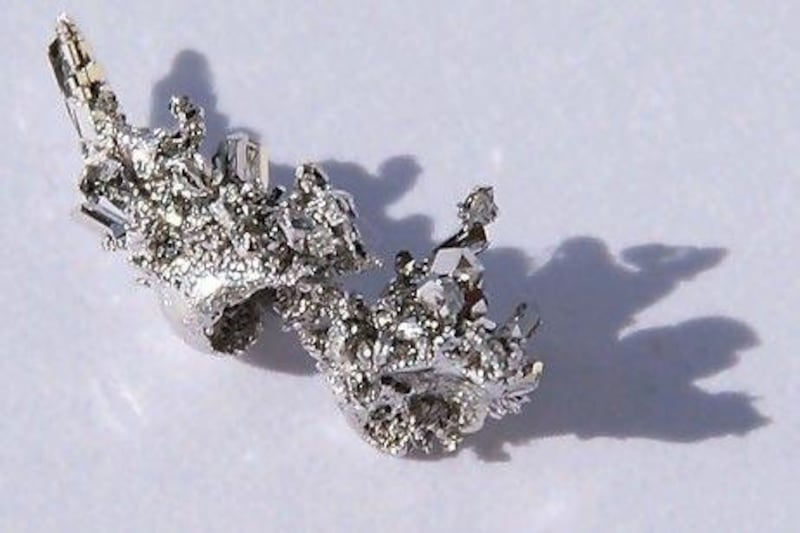An unexpected beneficiary of surging oil prices - and resilient in the face of decelerating Chinese growth - is a precious metal that few people have ever heard of and that is rarely found in a jeweller's shop.
The silvery-white metal palladium, used in the production of catalytic converters in cars, has had a good year. The growth of emerging markets and the desire of newly affluent people in countries such as India and China to own cars has boosted industrial demand for the metal.
That was all well and good until China, the world's biggest car market, reported a decrease in its growth target to 7.5 per cent for the year. The Chinese industry minister has also indicated that sales targets of car makers in the country may be optimistic, Bloomberg News reported yesterday.
But while China's recent downgrade of growth estimates had hurt palladium prices, markets had oversold the metal, said Gerhard Schubert, the head of precious metals at Emirates NBD. "The re-rating of growth has hurt all the white metals," he said. "Palladium should come out the best of it."
The metal has risen 3.5 per cent to US$695.55 per troy ounce since China's growth downgrade was announced this week, and the metal is up 5.7 per cent so far this year.
The recent spike in oil prices means diesel engines, which require more palladium for their catalytic converters, will be preferred for their fuel efficiency, Mr Schubert said.
"In the automotive industry, with more focus on diesel engines, palladium will be the winner because the composition is different," he said.
In addition, jitters following the controversial re-election this week of Vladimir Putin as Russia's president also provide upside potential for palladium.
Russia produces about three-quarters of the world's palladium, and access to its supply is subject to greater uncertainty.
"Russia has always been the joker in the pack in this market," said Ole Hansen, the head of commodity strategy at Saxo Bank.
The country has long contributed to the volatility of the metal's price, owing to its accumulation of a vast - and undisclosed - amount of the metal, which Mr Hansen described as the "most well-known secret" of the industry.
The fear of those stocks being dumped on the market have existed since the Soviet days.
twitter: Follow our breaking business news and retweet to your followers. Follow us





